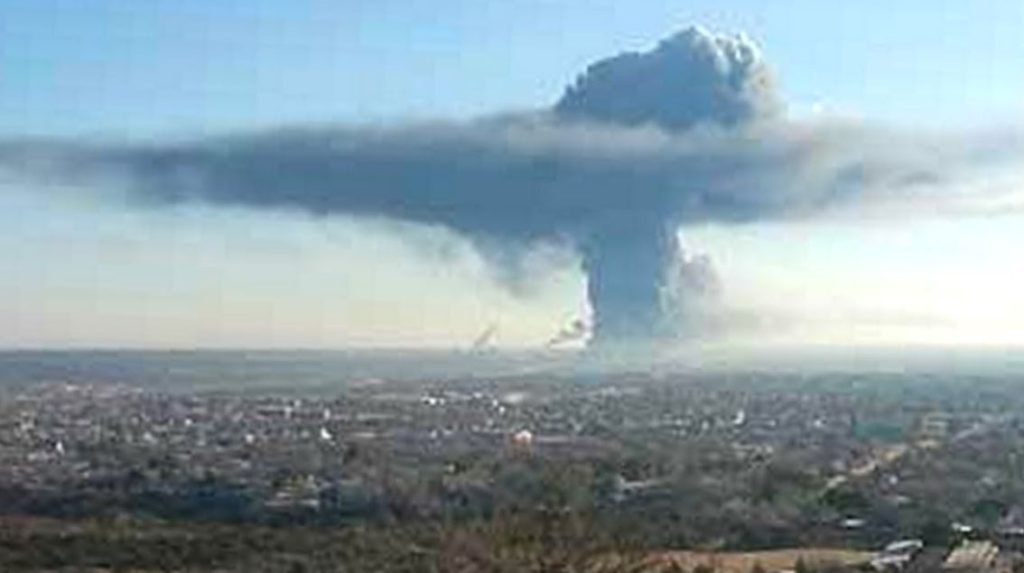by John Young
The explosion didn’t destroy the small Texas town of West. It only took out 120 of its homes, its nursing home and three of its schools.
Add to that tally the deaths of 15, including 12 first-responders who showed up to a fire alarm, not knowing they were about to be vaporized. More than 150 were injured in the town of less than 3,000.
Witnesses compared the 2013 detonation at the West Fertilizer Co. – caused when flames ignited a stockpile of ammonium nitrate — to that of a nuclear bomb. Thus it was investigated like one.
The Obama administration took seriously the task of preventing such accidents and informing nearby residents and first-responders of the dangers.
The rules adopted after the West explosion involved better inspections and better information for surrounding communities and those who serve them.
Now the Trump administration has shown – guess what? – that it will take most seriously the desires of industry relatively to these matters, doing so at the expense of – guess what? — safety.
Days after the five-year anniversary of the April 17, 2013, blast, EPA chief Scott Pruitt announced he would rescind the rules.
West Mayor Tommy Muska calls it dangerous policy. “If we don’t regulate this, it will happen again,” he told the Austin American-Statesman.
Of course it will. But that’s the future. For now, let’s cut corners to satisfy business concerns and to justify policies that put the interests of a few above the interest of many. People will forget who did what by the next time disaster strikes.
Whether it’s protecting our water or our air, or extending the life of our planet, Republican leaders seem wholly content to focus on short-term, bottom-line considerations.
The notion of taking the long view of anything — “An ounce of prevention…” — is not their job. Rolling back common-sense protections at the behest of moneyed interests — that’s more like it.
On another policy front, consider what Republicans in the House proposed recently when renewal of the annual farm bill came up.
The GOP-controlled Committee on Agriculture voted to gut immensely successful land conservation programs.
We’re talking about initiatives dating back to federal responses to the Dust Bowl era, 1930-1936.
The committee voted to eliminate the Conservation Stewardship Program, which provides financial incentives for farmers to perform conservation practices like grazing management and the planting of cover crops and range grasses to prevent soil erosion.
These policies are smart. The Dust Bowl wasn’t caused by nature. It was caused by man – specifically the overplanting of crops because the getting was so good. Even during severe drought, planting practices were all about the next crop, not about the future beyond it, when the rain didn’t come or when markets turned sour.
House Republicans didn’t abandon soil conservation entirely in the newest farm bill, but in dollar terms it would represent a severe pullback in support. To do what? To justify unjustifiable tax cuts, we must assume.
The good news is that the farm bill, which also took draconian swipes at food stamp assistance, was defeated by a bipartisan backlash. But pay close attention. The same themes will return when the bill does.
Did we mention the Dust Bowl? As the mayor of West said about a horrific tragedy in his town, if we don’t regulate such a thing, “It will happen again.”

